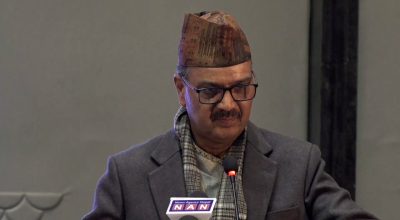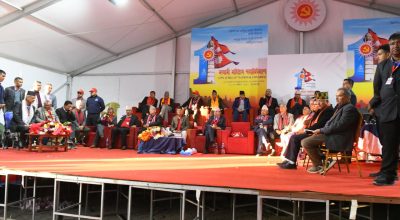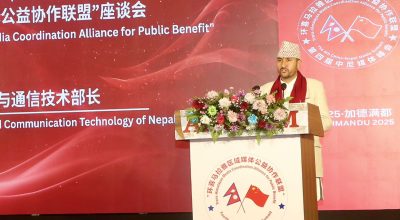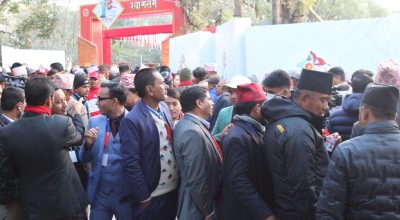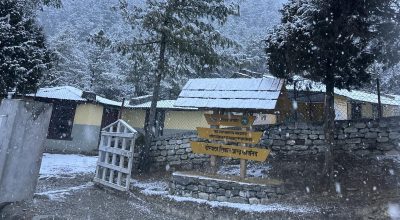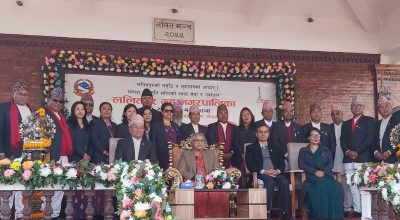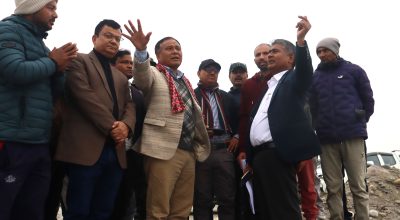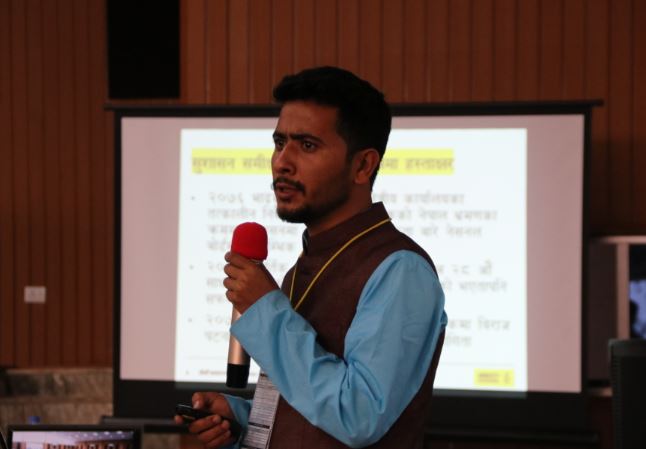
Kathmandu, Dec 17: Amnesty International Nepal (AI Nepal) has elected new leadership from its 33rd Annual General Meeting (AGM) held recently in Nawalparasi (Bardaghat Susta Purba).
Bipin Budhathoki was re-elected as the Chairperson for a second term and will be joined by newly elected board members Puja Thapa, Mausam Karki, Alisha Mahat, Meena Thapa, Shachita Kuikel, Keshab Pokherel, Baikuntha Prasad Aryal, Lokendra Singh, Suman Kumar and Hom Bahadur Adhikari. Members and coordinators of various statutory committees were also elected. All elected representatives will serve a three-year term.
The two-day event, held on December 14 and 15, marked a significant milestone for the organisation by charting its course for human rights action for the year 2025, the AI Nepal said through a press release.
The AGM approved several critical agenda items, including the statutory reports of the fiscal year 2080/81, the annual human rights action plan and budget for the year 2025, and the appointment of auditors for the fiscal year 2081/82. A new National Board and statutory committees were also elected, marking a fresh chapter in AI Nepal’s governance.
Over 150 participants, including 100 voting delegates representing Amnesty Nepal’s groups, youth networks, and individual members from across the country, attended the meeting. Also present at the meeting were the Board and Appeal Committee officials, staff, former Chairs, volunteers, and observers.
One of the highlights of the AGM’s inaugural session was the inaugural address by chief guest Gagan Kumar Thapa, Member of the House of Representatives, former Minister of Health, and General Secretary of Nepali Congress. In his address, Thapa underscored Nepal’s unique position as a beacon of democracy in South Asia.
“In the South Asian context, Nepal stands out as the last remaining democracy that has upheld the principles of secularism while fostering respect and tolerance for its diverse cultural and religious differences. This unique position places a profound responsibility on us to safeguard these values. Together, we must strive to strengthen our communities, foster mutual understanding, and build a society where human rights are not only protected but celebrated,” said Thapa.
At the inauguration, Suman Adhikari, founding Chair of the Conflict Victims Common Platform, also delivered a powerful message urging Amnesty Nepal members to proactively hold the government accountable for addressing human rights violations committed during Nepal’s conflict era, highlighting the urgent need for action.
“The transitional justice process is at a critical juncture. As Amnesty members, we must ensure that justice for victims is not delayed or denied,” Adhikari stressed.
A video message from Nutan Thapaliya, the founder of AI Nepal, provided a heartfelt reminder of the organisation’s legacy and its unwavering commitment to human rights in Nepal. Thapaliya shared reflections on the long journey AI Nepal has undertaken to strengthen its advocacy, rallying members to remain steadfast in their mission.
Wrapping up the AGM, Charan Prasai, a senior human rights defender and former Chair of Amnesty Nepal, congratulated the newly elected board and reminded members of the challenges ahead.
“We do not have the liberty to slow down in a world that is increasingly becoming disrespectful of human rights,” Prasai said, urging members to stay vigilant and proactive.
Newly elected Chairperson Bipin Budhathoki shared his vision for the organisation’s future.
“Continuity of Amnesty Nepal’s governance reform process and a clear, strong, and effective human rights movement through new strategic goals will be the mandate for us. We will work to spread Amnesty’s presence to the local level while ensuring long-term impact and upholding the dignity of all members,” Budhathoki said, emphasising the need to keep the spirit of Amnesty’s movement alive.
The AGM concluded with a renewed commitment to defending human rights, fostering accountability, and expanding Amnesty Nepal’s reach and impact in the years to come.






